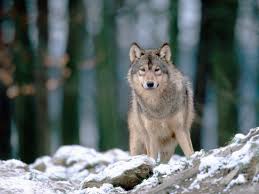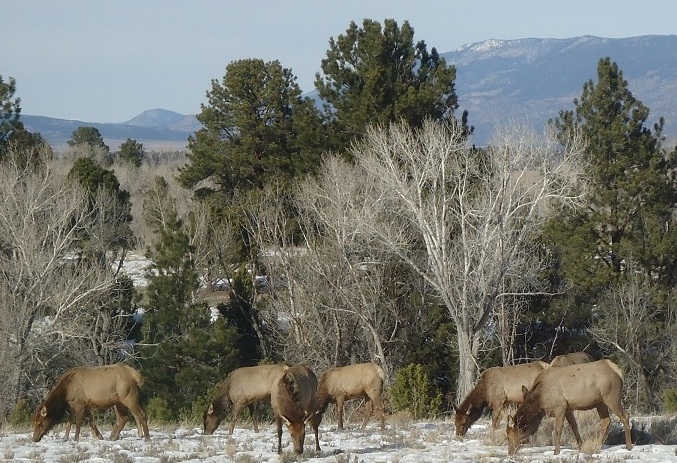
One of several wolves at Yellowstone.
Several studies on fear have been published providing us with a better understanding of various factors, such as the “landscape of fear” in ecology (the term is from John W. Laundré, professor at University of California, Riverside). Laundré and his colleagues studied the impact of the release of wolves on elk in Yellowstone National Park after 50 years of being wolf-free. Basically they discovered that the fear of predation—not only actual attacks—caused increased stress, mainly among females with or without calves. This idea has held up among other studies. It is the perception of fear, not just the reality, that creates the “landscape of fear.” Thus, there is a nonlethal aspect of fear that changes one’s environment. For elk, it often means less foraging time, impacting health, nutrition, and reproduction.
There is a correlation of the landscape of fear concept to people. For example, some studies indicate that there is a profile of people, called authoritarians, who, in fact, are acting out of perceived fear. “Authoritarians are thought to express much deeper fears than the rest of the electorate, to seek the imposition of order where they perceive dangerous change, and to desire a strong leader who will defeat those fears with force.”
“Authoritarians prioritize social order and hierarchies, which bring a sense of control to a chaotic world. Challenges to that order—diversity, influx of outsiders, breakdown of the old order—are experienced as personally threatening because they risk upending the status quo order they equate with basic security.”
Catering to these latent fears, voicing them in strident, “us vs. them” terms appeals to authoritarians, even if when examined closely such claims have no sense of reality or truth to them. Researchers agree that “people do not support extreme policies and strongman leaders just out of an affirmative desire for authoritarianism, but rather as a response to experiencing certain kinds of threats.” When these threats are exaggerated, amplified, and shouted at them in simplistic terms, authoritarians react positively.
For some, change and chaos are an anathema. For others, they’re life.

These elk happen to be on my property in Colorado, not Yellowstone.
Here’s a link to a summary of some of the studies on authoritarians: http://www.vox.com/2016/3/1/11127424/trump-authoritarianism
Here’s a link to the Laundré and colleagues study: http://www.esf.edu/efb/faculty/documents/Laundreetal2001elkandbison.pdf